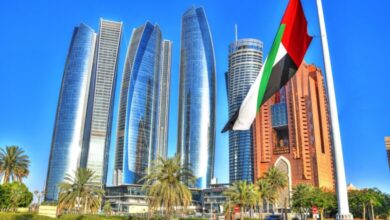From Power to Profit: How Bitcoin Mining and AI Data Centers Create a New Roadmap for Energy Producers

In the evolving energy landscape, countries with surplus power are rethinking traditional export strategies in favor of new opportunities in the digital economy. Notably, Ethiopia and Oman have shifted toward Bitcoin mining as a profitable way to monetize excess energy. However, with the rising energy demands of AI-driven data centers, a new roadmap is emerging for power producers.
This analysis, presented by Unlock Blockchain, delves into why mining offers a more stable and predictable revenue stream and how the future might be shaped by AI data center investments in politically stable states aligned with Western interests.
Bitcoin Mining: The Wholesale Approach to Surplus Energy
Bitcoin mining stands out as an effective method for monetizing surplus energy. The mining process is straightforward: electricity powers specialized hardware to validate blockchain transactions, generating cryptocurrency rewards. This differs significantly from power exports, which involve complex negotiations, price volatility, and reliance on geopolitical stability. Mining provides a simpler, wholesale operation with predictable revenue cycles.
Ethiopia’s Success in Bitcoin Mining
Ethiopia’s shift to Bitcoin mining has brought substantial economic benefits. Over the past 10 months, Ethiopia engaged with 25 mining companies, generating over $55 million in revenue. The Ethiopian Electric Power (EEP) allocated nearly 600 MW of energy to these operations, positioning the country as the fourth-largest global contributor to the Bitcoin hash rate, accounting for approximately 2.25%.
Ethiopia’s venture was fueled by the influx of Chinese miners after China’s 2021 ban on domestic mining. With abundant hydropower, Ethiopia was an attractive destination. A $250 million agreement with Hong Kong’s West Data Group in early 2024 underscored Ethiopia’s commitment to expanding mining infrastructure and solidifying its global presence in digital asset production.
Oman’s Strategic Moves in the MENA Region
Oman has also positioned itself as a significant player in cryptocurrency mining. As detailed by Unlock Blockchain, in August 2023, Green Data City in Muscat partnered with the Phoenix Group from Abu Dhabi to launch a $300 million, 150 MW crypto-mining facility set to open by mid-2024. This aligns with Oman’s Vision 2040, emphasizing economic diversification and technology integration.
The collaboration between Green Data City and Nasdaq-listed Canaan Creative further reinforced Oman’s commitment. A pilot mining phase, with plans to scale up to 100 MW, demonstrated Oman’s focus on leveraging its energy resources for high-yield digital investments.
Why Bitcoin Mining is More Predictable Than Power Exports
Exporting electricity, though lucrative, has limitations:
Complexity: Cross-border agreements require extensive negotiations and infrastructure development.
Revenue Volatility: Power prices are subject to change based on global market conditions and political dynamics.
Infrastructure Dependence: Transmitting electricity necessitates robust and well-maintained transmission lines, which are not always feasible.
Bitcoin mining, on the other hand, utilizes local resources directly, converting energy into digital assets without the unpredictability associated with international agreements. This provides power producers with a stable and potentially higher revenue stream.
AI Data Centers: A New Chapter for Power Producers
As AI technology continues to advance, data centers that support AI training and high-performance computing are becoming major energy consumers. This creates a roadmap for power producers to cater to this demand, but it comes with specific considerations:
Political Stability: AI data centers represent significant long-term investments. They require politically stable environments to avoid disruptions and ensure steady operations. Countries with stable governance and reliable regulations are prime candidates for hosting these facilities.
Alignment with the West: Given the strategic and often sensitive nature of AI operations, Western tech companies and investors prefer regions that align with their regulatory frameworks and geopolitical interests. This alignment guarantees compliance with data protection and security standards.
Infrastructure and Sustainability: To attract AI data centers, nations must invest in resilient infrastructure and prioritize clean energy sources. The centers consume massive power, and aligning with global sustainability trends enhances a country’s appeal as an AI hub.
Examples of Successful Data Center Alignments
Nordic Countries: Norway, Sweden, and Finland exemplify how stable, energy-rich states can successfully attract data centers. These countries offer abundant renewable energy, compliance with Western regulations, and secure environments.
United States and Canada: Both countries host some of the largest AI data centers globally. The U.S. leverages its regulatory environment and tech ecosystem, while Canada benefits from strong U.S. ties, renewable energy, and political stability.
A Dual Strategy for Power Producers
For countries with surplus power but political instability or weaker ties with the West, the roadmap may diverge:
Bitcoin Mining as an Alternative: These nations can capitalize on their energy surplus by focusing on cryptocurrency mining. This approach is less politically sensitive and can be profitable without the same level of geopolitical scrutiny.
Export Strategies: Some may continue exporting electricity but could face challenges related to pricing and infrastructure.
Challenges and Considerations
Although Bitcoin mining and AI data centers present lucrative opportunities, they require significant infrastructure, including advanced data centers and cooling systems. Power producers must ensure that these ventures do not compromise local electricity access. Embracing sustainable practices and balancing domestic needs with external demand are critical to long-term success.
Ethiopia and Oman’s experiences illustrate the profitability and predictability of Bitcoin mining for monetizing surplus energy. However, as AI continues to drive energy demand, power producers may look to politically stable and Western-aligned states for opportunities in AI data centers. This dual strategy can serve as a roadmap for energy-rich nations, positioning them for growth in the digital economy while ensuring economic stability and resilience.




